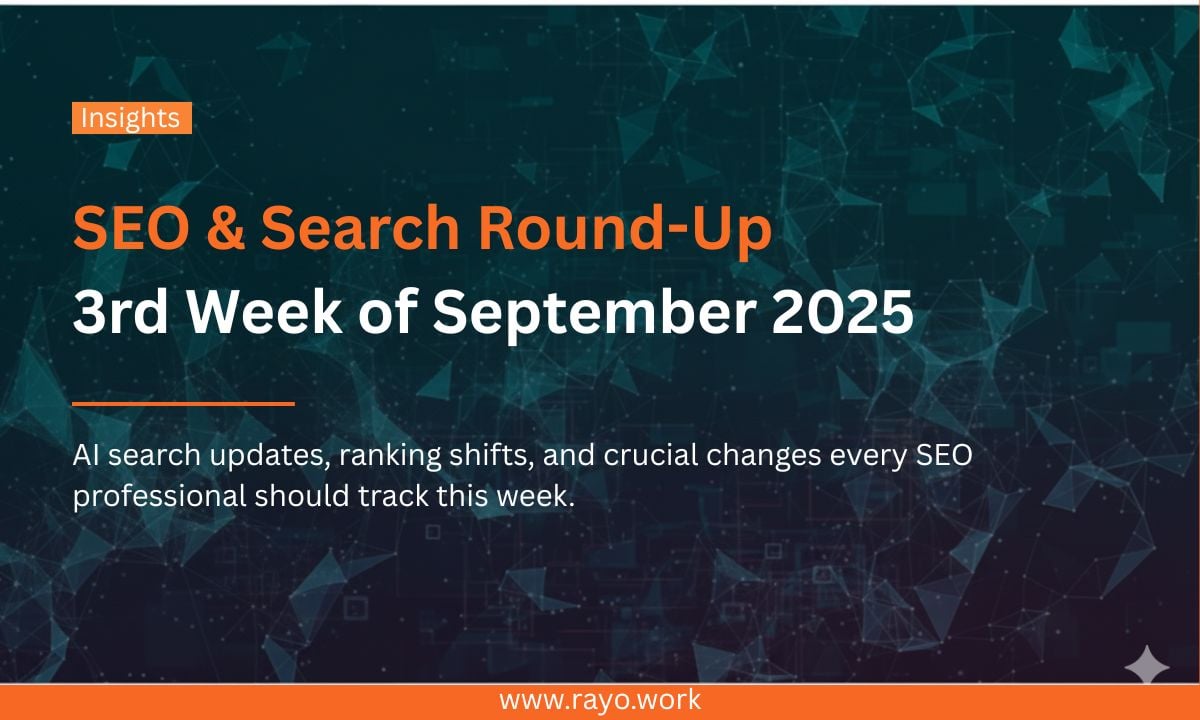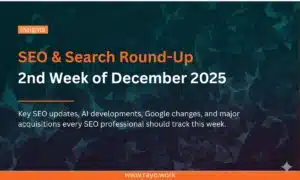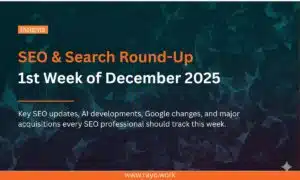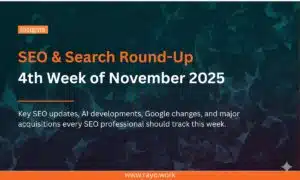This week in SEO saw a mix of experimentation, updates, and ongoing adjustments that could affect rankings, reporting, and content strategy.
From Google testing AI Mode as a more prominent search experience, to the ripple effects of the August 2025 spam update, to subtle but important updates in Search Console and ranking metrics, there’s plenty to keep SEOs on their toes. Here’s a breakdown of the biggest stories and what they mean for your SEO strategy.
1. Google AI Mode May Become the Default (Speculation)
What happened:
A brief response from Google Product Lead Logan Kilpatrick, simply stating “Soon”, to a query about AI Mode becoming the default search experience sparked significant speculation.
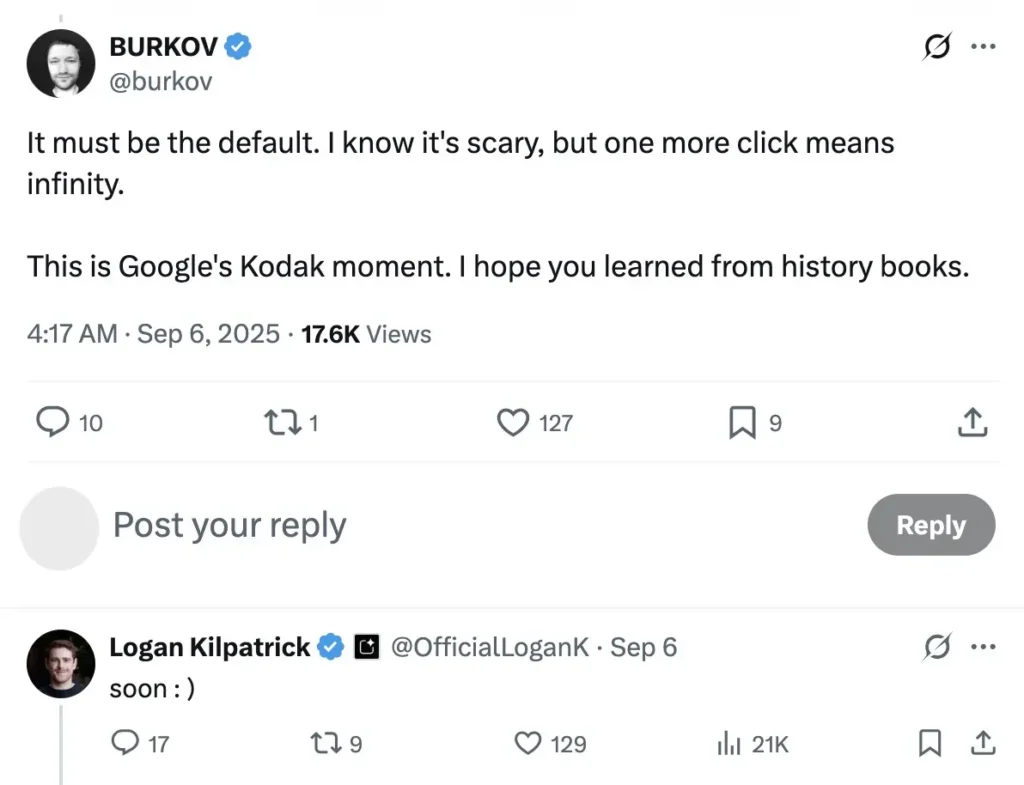
However, two days later, Google VP Robby Stein clarified that the company is focused on making AI Mode easily accessible for those who want it, rather than replacing the traditional search experience.
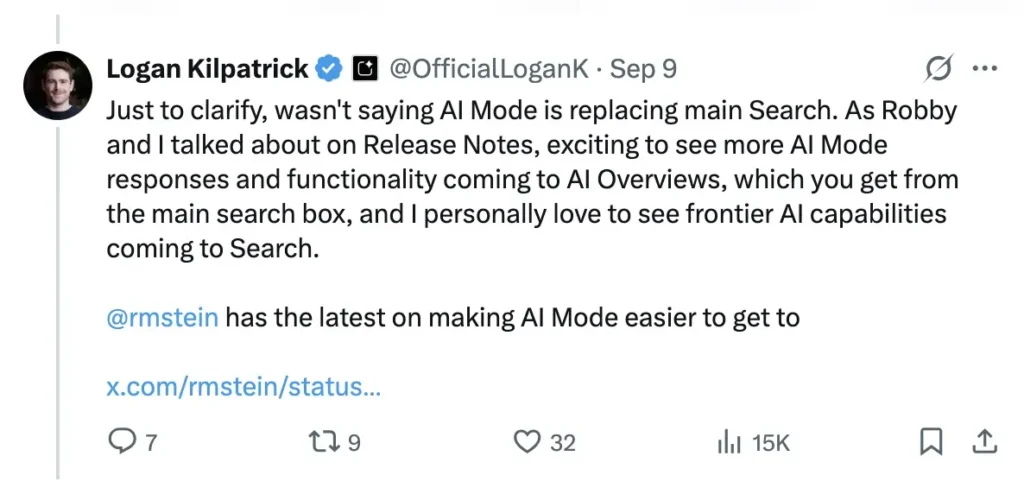
Why it matters:
If true, this would reshape how users consume results. Instead of scanning 10 blue links, they’d see AI-generated answers first. Publishers could see reduced clicks, while brand visibility within AI summaries becomes critical.
What to do:
- Start optimizing for AI Overviews visibility (structured data, clear FAQs, concise expert explanations).
- Track traffic patterns: if AI becomes the default, CTRs will shift.
- Experiment with Generative Engine Optimization (GEO), structuring content to be referenced inside AI summaries.
2. Google’s August 2025 Spam Update Still Causing Volatility
What happened:
The August spam update is still rolling out, and SEOs report massive ranking fluctuations. Spammy, low-quality, and AI-generated content appear to be the main targets.
Why it matters:
Sites with thin or mass-produced AI content are losing ground. Meanwhile, brands with strong EEAT (Expertise, Experience, Authority, Trust) signals are gaining visibility.
What to do:
- Audit your site for low-value pages. Prune, merge, or improve weak content.
- Strengthen author bios, references, and fact-checking.
- Monitor rank volatility with multiple tools, not just GSC.
3. Google Removes the 100 Results Per Page Option
What’s happening:
Around September 14, many in the SEO community noticed that the &num=100 URL parameter, used to force Google Search to display 100 results per page, was either failing, working intermittently, or being ignored entirely. It appears Google may have disabled or is testing the removal of this function.
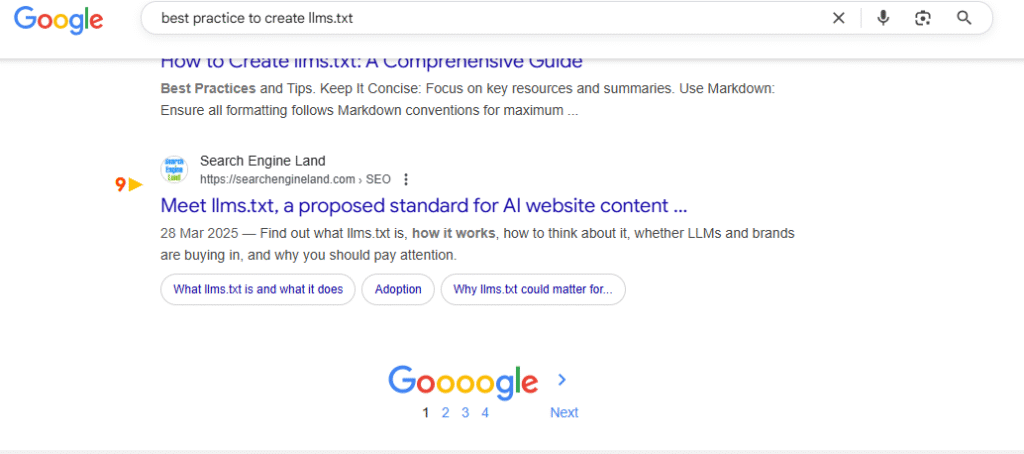
Why it matters:
- Rank‑tracking tools and dashboards that rely on this parameter may report fewer results or errors.
- Desktop impressions and average positions could look different, affecting reporting.
- This may be temporary, but some SEO metrics will appear inconsistent.
What we don’t know / open questions:
- Whether the removal is permanent, temporarily experimental, or being rolled out gradually. Some users see it working sometimes, others not.
- Google has not confirmed anything yet. We don’t have an official statement.
What to do:
- Adjust reporting baselines and expectations.
- Check with your rank-tracking tool provider for updates.
- Watch for gaps or unusual spikes in performance metrics.
- Communicate this change to clients and teams to avoid misinterpretation.
4. Google Search Console Adds “Achievements” Section

What happened:
GSC now has a dedicated Achievements section, turning what used to be milestone emails into a permanent dashboard. It shows progress on clicks, impressions, and indexing improvements.

Why it matters:
This helps SEOs showcase results to stakeholders and track milestones more easily. It’s less about new data and more about packaging insights for visibility.
What to do:
- Use Achievements as a client reporting tool to demonstrate wins.
- Pair it with traffic data to tell a story (e.g., “we unlocked X clicks in Y months”).
- Don’t rely on it for deep analysis; it’s motivational, not diagnostic.
5. Google Updates Search Quality Raters Guidelines
What happened:
Google quietly updated its Search Quality Raters Guidelines (accessible here).

The changes include:
- Clarified YMYL (Your Money, Your Life) definitions.
- New examples of rating AI Overviews.
- Fixes for minor typos and definitions.
Why it matters:
While raters don’t directly impact rankings, their feedback shapes algorithm training. This shows Google is actively refining how AI Overviews and YMYL content are judged.
What to do:
- Review your YMYL content (finance, health, legal) for accuracy, authority, and transparency. For a detailed breakdown of Google’s updated guidelines, see our Quality Rater Guidelines guide.
- Add contextual signals like expert authorship, references, and disclaimers.
- Expect AI Overviews evaluation to influence future updates.
Other Great Search Threads (3rd Week of September 2025)
- AI Overviews bug with PAAs – William Green on X
→ SEMrush confirmed a glitch in how PAAs were processed with AI Overviews, explaining sudden drops in reporting. (Link) - AI Overviews in Google Discover Desktop – Damien (andell) on X
→ A sneak peek at how AI Overviews are being integrated into Discover for desktop users, with a slightly different UX than mobile. (Link) - Copilot Labs Scripted Mode Launch – Mustafa Suleyman on X
→ New “scripted” mode for audio generation lets users get verbatim readings, expanding creative and practical AI use cases. (Link) - Detailed acquired by Ahrefs – Glen Allsopp on X
→ Big industry news: SEO publication Detailed joins forces with Ahrefs, marking a major move in the SEO media landscape. (Link)

Ridam Khare is an SEO strategist with 7+ years of experience specializing in AI-driven content creation. He helps businesses scale high-quality blogs that rank, engage, and convert.
